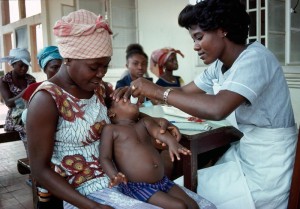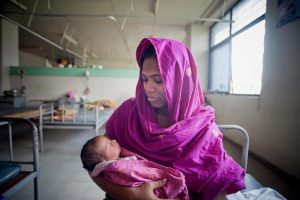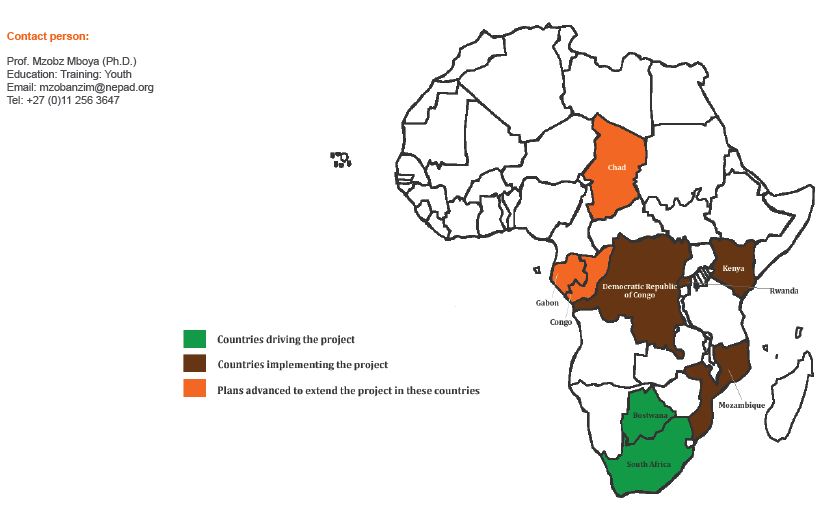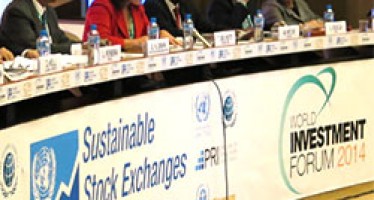NEPAD: Improving Frontline Healthcare in Africa
 Hundreds of millions of women and children have no access to potentially life-saving care with often fatal results. 358,000 women died due to complications in pregnancy and childbirth in the year 2008, with 99 percent of the deaths occurring in sub-Saharan Africa and Asia, according to recent estimates by the World Health Organization (WHO).
Hundreds of millions of women and children have no access to potentially life-saving care with often fatal results. 358,000 women died due to complications in pregnancy and childbirth in the year 2008, with 99 percent of the deaths occurring in sub-Saharan Africa and Asia, according to recent estimates by the World Health Organization (WHO).
There are many more examples of mortality and morbidity that can be prevented with improved quality of nursing and midwifery care. Such care can best be initiated, maintained and improved by training nurses and equipping them with advanced knowledge and skills, says the New Partnership for Africa’s Development, NEPAD Agency.
The NEPAD Agency has been at the forefront in mobilising funds from bilateral partners to support the training of nurses and midwives across the continent and enhance African-led health care research. So far, five million dollars have been earmarked for the Economic Community of West African States (ECOWAS) and the Economic Community of Central African States (ECCAS) for training programmes in community health nursing, maternal and child health, mental health nursing, critical care and trauma nursing.
 The NEPAD Agency believes that nurses and midwives are in the frontline of health services in Africa. Training these health workers has a real impact on the ground. Ensuring that they are provided with the necessary competencies to work and function properly is key in reducing alarmingly high maternal and mortality rates in Africa.
The NEPAD Agency believes that nurses and midwives are in the frontline of health services in Africa. Training these health workers has a real impact on the ground. Ensuring that they are provided with the necessary competencies to work and function properly is key in reducing alarmingly high maternal and mortality rates in Africa.
The continent currently has an estimated shortage of one million health workers; other estimates find the shortage to be even greater. While the numbers and types of health workers vary by country, statistical snapshots leave no doubt of the scope of the health worker crisis in Africa.
Delivery of quality health care in the majority of developing countries is also hampered by a lack of or limited health care workforce, weak infrastructure and unsustainable health care financing mechanisms. This deficit hinders many African countries from achieving the health-related Millennium Development Goals such as universal access to HIV and AIDS treatment, child health, maternal health and other health goals. Nor can malaria be combated without effective healthcare services and systems.
As a response to these challenges, the NEPAD Agency has been training nurses and midwives in East and Southern Africa. They have completed master’s degrees and acquired work experience that enable them to improve how they serve their communities. Around 100 nurses and midwives from East and Central Africa will have graduated with master’s degrees by 2013.
As part of the programme, a consortium of Southern African universities is assisting five countries to establish advanced training programmes in community health nursing, maternal and child health, mental health nursing and critical care and trauma nursing. The NEPAD Agency is collaborating with these institutions to set-up centres of excellence for participating countries to build health curriculums, research capacities and health-care training.
Kenya, Tanzania, Rwanda, Mozambique and most recently the Democratic Republic of Congo now have at least one such specialist health programme. In Kenya specialists in community health nursing, maternal and child nursing graduated whilst students in Tanzania specialised in psychiatric nursing, critical care and trauma. In the Democratic Republic of Congo the specialist training is focused on maternal and child nursing and in Rwanda on critical care and trauma. This training provides not only specialist practitioners, but also researchers in these fields and people who can train others.
Plans are advanced to extend the project to countries of the Economic Community of Central African States (ECCAS), namely Chad, Gabon and the Republic of Congo. The three-year master’s programme will commence in these countries in early 2013 and will provide 75 students the opportunity to study to post-graduate level a health-care course.
Most of these trained nurses will go back to their communities, mostly rural and remote areas, trying to meet the health-care needs in these neglected parts of the countries. Others will pursue doctor’s degrees as offered in the recently started Gabonese health specialist programme.
The project is hoped to run over a period of ten years and will seek to mobilise ten million dollars from bilateral partners so as to contribute towards achieving the health-related Millennium Development Goals.
About NEPAD
The New Partnership for Africa’s Development (NEPAD) is a flagship socio-economic programme of the African Union (AU). NEPAD’s four primary objectives are to eradicate poverty, promote sustainable growth and development, integrate Africa in the world economy and accelerate the empowerment of women.
The NEPAD Agency is a technical body of the AU that advocates for NEPAD, facilitates and coordinates development of NEPAD continent-wide programmes and projects, mobilises resources and engages the global community, regional economic communities and member states in the implementation of these programmes and projects. The NEPAD Agency replaced the NEPAD Secretariat which had coordinated the implementation of NEPAD programmes and projects since 2001.
The strategic direction of the NEPAD Agency is premised on six themes: Agriculture and Food Security, Climate Change and Natural Resource Management, Regional Integration and Infrastructure, Human Development, Economic and Corporate Governance as well as Cross-Cutting Issues including Gender, ICT and Capacity Development.
You may have an interest in also reading…
World Investment Forum: Seeking Ways to Unlock the Idle Trillions
As the United Nations Conference on Trade and Development (UNCTAD) celebrates its fiftieth anniversary, business and government leaders from across
World Bank MENA Chief Economist: Towards a New Social Contract in the Middle East and North Africa
By Shanta Devarajan A snapshot of the Middle East and North Africa (MENA) Region today reveals a diverse and discouraging
United Nations Office for Project Services (UNOPS): Sustainable Results in Challenging Environments
From building shelters in Haiti or helping to improve the school system in South Sudan, to buying medicines in Myanmar



















































































